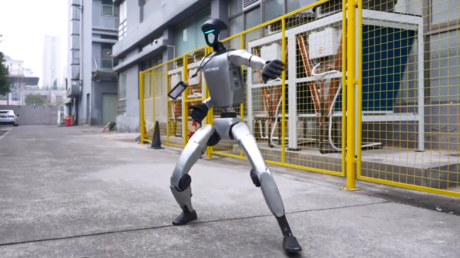ARTICLE AD BOX
The billionaire noted there are already certain operations that can only be performed by machines
Robots will soon replace human surgeons and are already capable of carrying out operations that are considered impossible for ordinary people to perform, Elon Musk has predicted.
In a post on X on Saturday, the billionaire tech entrepreneur suggested that in just a “few years,” robots will surpass “good human surgeons” and will beat the best doctors within about five years.
He noted that his Neuralink biotech company has already had to rely on robot surgeons to carry out the brain-computer electrode insertion of brain chips because the required speed and precision is “impossible for a human to achieve.”
Musk’s comments came in response to a post by popular X influencer Mario Nawfal, who quoted an article about the rising success of robot surgeons such as the Medtronic ‘Hugo’. It is reported that the robot has already been tested in 137 real surgeries such as fixing prostates, kidneys, and bladders.
Read more WATCH humanoid robot perform kung fu
WATCH humanoid robot perform kung fu
“The results were better than doctors expected,” Nawfal said, noting that the complication rates were 3.7% for prostate surgeries, 1.9% for kidney operations, and 17.9% for bladder procedures.
“The robots got a 98.5% success rate, way above the 85% goal,” the post claimed, adding that out of the 137 surgeries, only two needed to be taken back over by real doctors due to a glitch and because of a “tricky patient case.”
Previously, Musk suggested that brain-computer interfaces like those being developed by Neuralink would replace technologies such as cell phones.
Neuralink has already successfully implanted its brain chip – about the size of a coin – in three patients. After the procedure, they were able to control a computer cursor and play video games like chess and Counter-Strike using only their thoughts. One of the patients, who is non-verbal, was also able to use the device to communicate through an AI-generated voice clone.
Musk has since announced plans to expand Neuralink’s clinical trials with the goal of implanting the brain chip in 20 to 30 more patients in 2025.
.png)
 3 hours ago
1
3 hours ago
1








 English (US)
English (US)